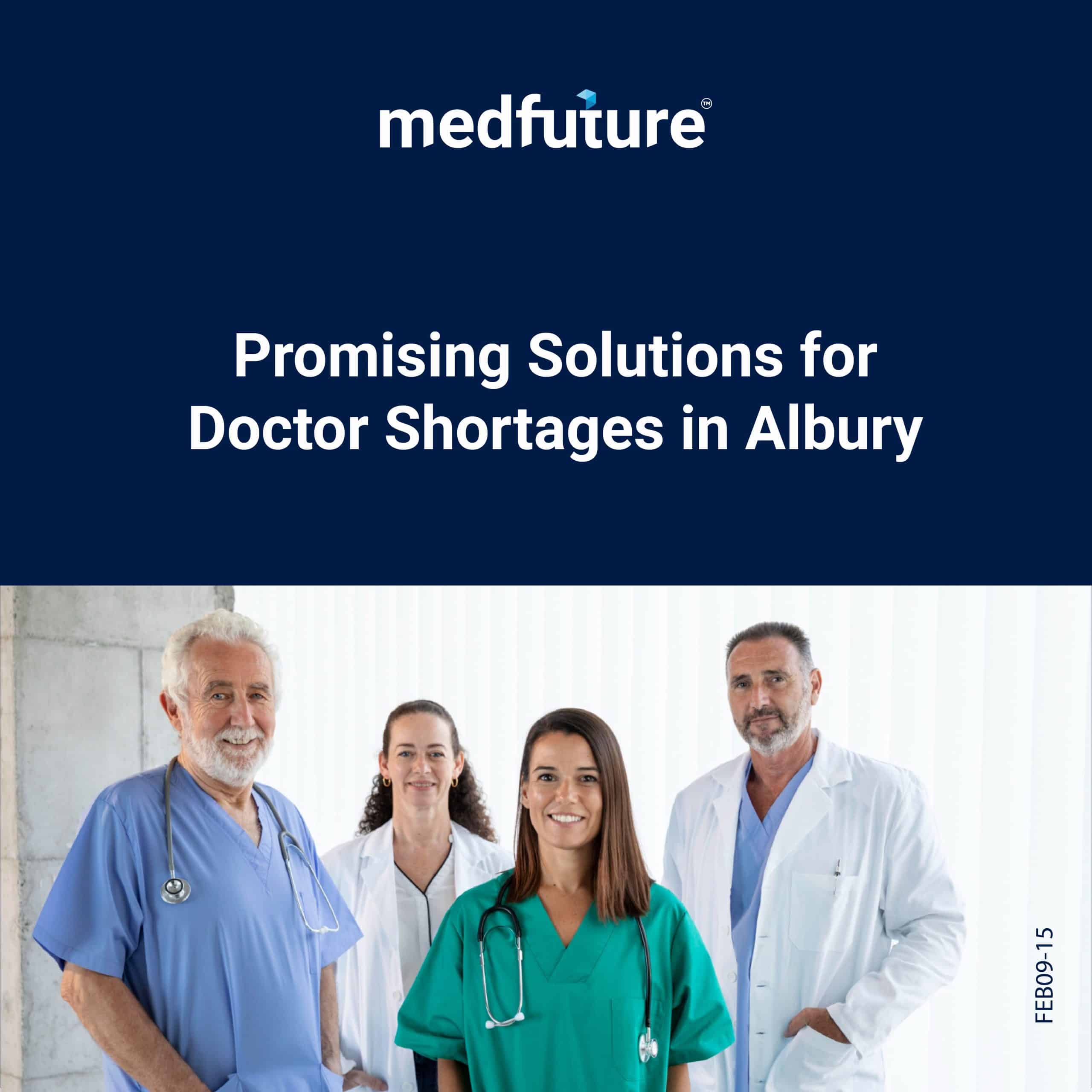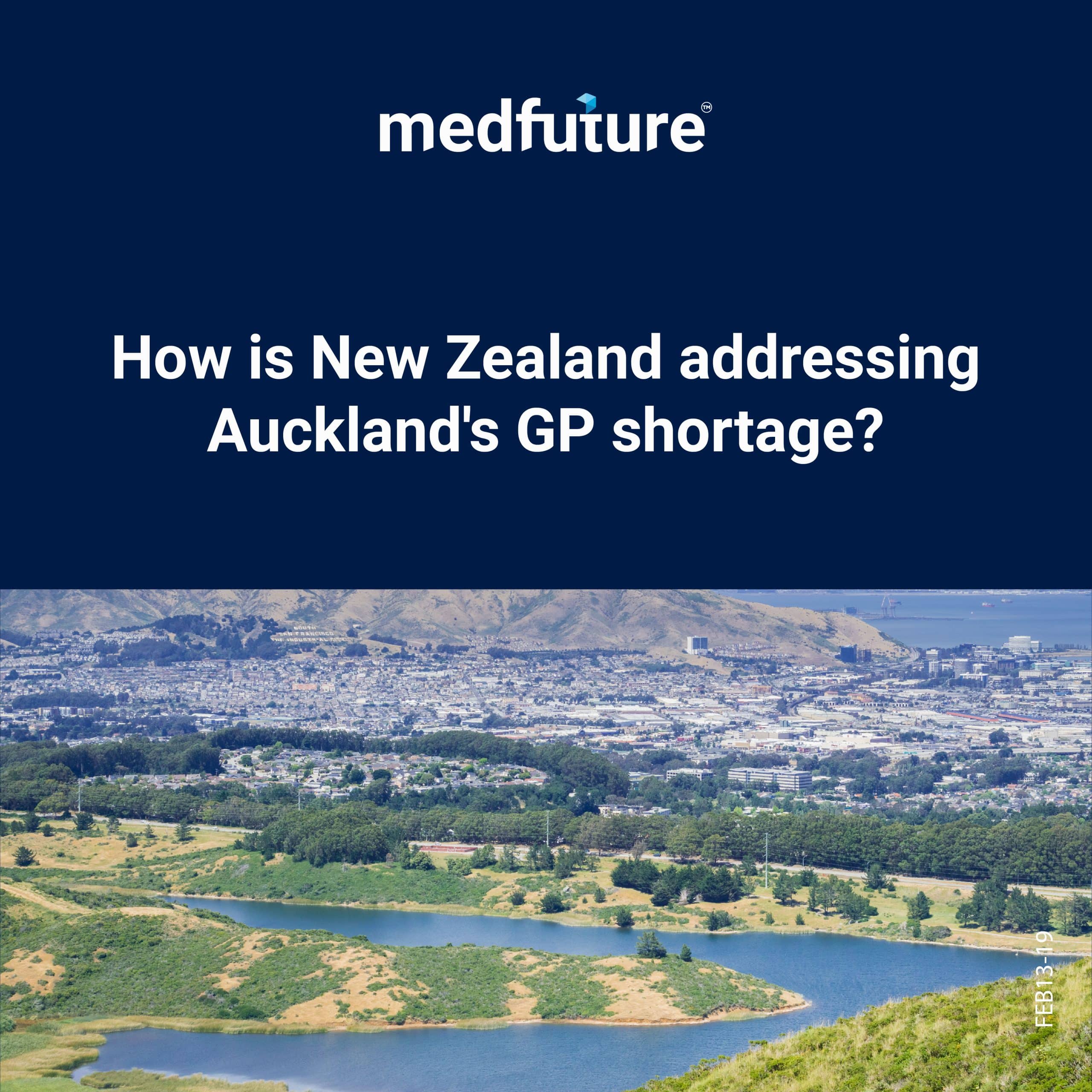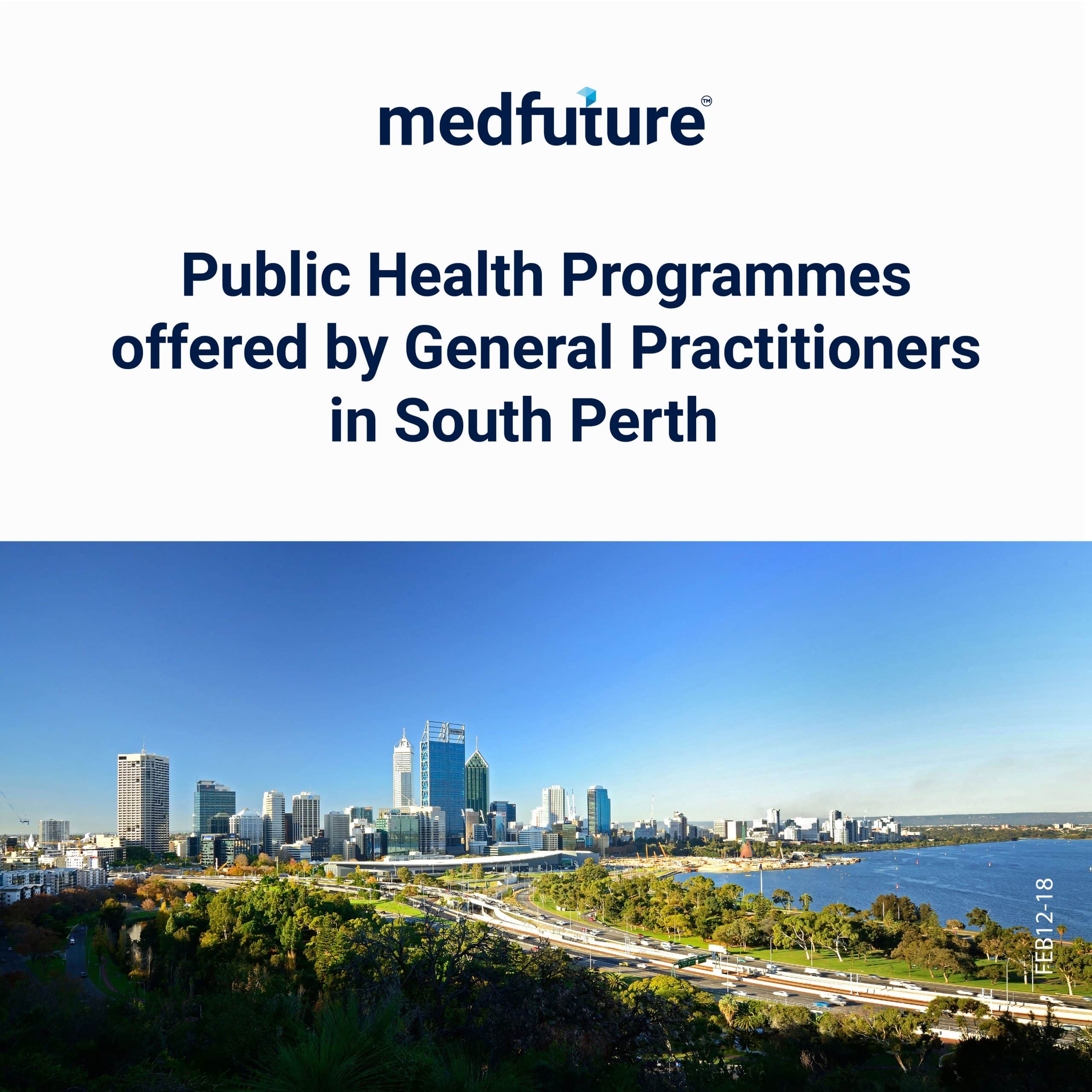Shortages of healthcare staff have become common in the modern world. It remains the same in many parts of Australia, including areas like Albury. Australia focuses on providing quality healthcare access to people in every state and region of the country. It includes metropolitan, rural, regional, and remote areas.
Medfuture continues to support this initiative by the Australian government to uplift healthcare standards and access to quality healthcare for everyone across the country.
More aspiring rural doctors on the border
Universities across Australia are continuously working towards increasing the intake of students studying medicine, ever since the end-to-end rural medical programme launched in 2019. Partnerships between higher education institutes and universities have been created to assist in solving the rural doctor shortage in New South Wales (NSW).
As part of this programme, selected medical students with an interest in rural medicine will spend three years embedded in rural regions in NSW, like Albury, and gain much-needed experience during that time.
Finally, they will pass out of college as qualified doctors and will be prepared to serve the community in regional areas like Albury. They will be in a suitable position to care for and address vitality issues for those who need them the most, in regional locations.
The programme initiating rural medicine was made popular in the Australian government’s 2018-2019 budget, which is made up of an alliance between universities with a good track record in wellness education and medicine.
Collaboration of organisations to enhance accessibility in cross border region
Cardihab and Albury Wodonga Health have partnered to improve healthcare accessibility in cross-border areas. They have initiated this collaboration as a means of ensuring continuous access to quality rehabilitation services for people living with chronic ailments in Victoria and New South Wales regions.
This is an initiative to provide comprehensive medical care services to everyone throughout the region. Albury Wodonga Health has extended this wellbeing access programme covering their medical care team as a means of providing health support services to those suffering from chronic diseases like diabetes and heart ailments, in the region.
Conducting digital programmes means many individuals will receive the care they require, what they have previously missed due to lack of access.
Victorian and NSW prime ministers to contribute towards rebuilding the Albury Hospital
The premiers of Victoria and NSW have laid out a plan to invest $558 million to rebuild the Albury Base Hospital. However, it is quite a disappointment for doctors who were expecting a brand new hospital to come up in the area.
Both Victoria and NSW states pledged $225 million for the redevelopment of the base hospital along with $108 that was set aside by the Commonwealth government. The reconstruction is expected to be completed by 2027.
The Secretary of the Border Medical Association expects the budget to exceed the estimate and that will take more time to rebuild the hospital.
Meanwhile, doctors in Albury seem highly disappointed because of their expectation of a new single-site hospital to come up in Albury. However, their request has been ignored and put away by the health departments without proper explanation and reasoning.
After-hour healthcare service promises for patients in a hurry
Due to the reason that the public has lost confidence in wellness credentials, the government has taken the initiative to open many after-hours general practice clinics at major hospitals. It is an $8 million investment launched in collaboration with the recruitment plan of 2500 nurses and is aimed at treating patients with minor medical issues without overburdening the emergency department.
For example, for parents in Albury in search of a place to take their sick child in the middle of the night, they no longer need to rush to the emergency department. This change is to be put in place in clinics that already exist in Albury, Nepean, and Liverpool. The NSW state government has given the initial capital required for this to be implemented in Albury and it subsidises the continuous costs through Medicare.
It has been put in place as a means of addressing and providing solutions for the GP shortage and safeguarding bulk billing. After-hours clinics provide patients in Albury with improved access to general practitioners.
Solutions to doctor shortage in Albury and across Australia
There is a global shortage of clinicians. The World Health Organisation (WHO) has estimated a global doctor shortage of 4.3 million. Australia, especially compares unfavourably concerning its medical practitioner count. The clinician shortage in Australia is intensified by cultural and disciplinary misdistribution in terms of medics relative to need and utility.
It is vital to spend on promoting vigour and preventing diseases. However, it’s highly unlikely that the demand for medics will reduce significantly due to the compression of morbidity in the later years of life.
Australia indeed has one of the best healthcare systems in the world. However, there is a major shortage of specialists in the country, especially in areas like Albury. A significant driver for reform of the healthcare workforce is the identification of present wellbeing costs that are not sustainable.
Complexity in health workforce planning
The following are the complexity factors in vitality workforce planning:
Economic and sociocultural changes
Changes in the collaboration between clinicians and public vitality advocates
Industry developments related to pharmaceuticals and the health sector
Differences in remuneration between medical and other divisions
Modifications to medical indemnity
Modifications to other aspects that impact clinical decision-making processes
The effects of ageing and generalisation modifications
Categories of solutions to doctor shortages in Albury and across Australia
Following are the different categories of solutions for doctor shortages in Albury and across Australia:
Compress the years of morbidity later on in life
Increase results from the wellness workforce by increasing the number of healthcare workers in the industry
Put in place the education system and wellbeing system so that they complement each other when it comes to patient care needs
Solutions to doctor shortages in Albury and across Australia
Here are some of the solutions to doctor shortages in Albury and across different regions within Australia:
Compress the years of morbidity in later life
Compressing the years of morbidity later on in life will be challenging in terms of epidemics, including diabetes and obesity. Vitality planning must start assuming a mean 3.75-hour work week. New roles and careers in healthcare need to be encouraged.
Proposals based on aspects of the wellness and education systems
The proposals are based on factors of vigour and education systems being better aligned to complement each other. This is done to increase wellness literacy and improve the care provided to patients. It is important to correct cultural, disciplinary, and demographic misdistribution of medical practitioners, including doctors.
Debate on the part of the role doctors need to play in the health system
It is suggested to have a debate focusing on the role that doctors need to play within the healthcare system in Australia. The goal is to provide high-quality healthcare services to people in Albury and across Australia. There is an increased number of cases where specialists give away their duties that are unprofitable.
Promotion of “generalism”
There is a significant vigour outcome basis for insisting that medical practitioners should be primarily employed in the general scope of practice. Australia has an abundance of specialists in every area of wellbeing and a scarcity of “generalists” who are crucial in taking care of multi-system issues. It is a general issue that has had an impact globally.
Medical self-sufficiency
Medical self-sufficiency is an ethical argument where Australia had been marked as an “irresponsible” developed country with a higher number of foreign-trained doctors and nurses. There is also a major shortage of medical academics, which is proven by the capitated level of publicly funded fitness research which is 19% for Australia.
Field-trial discoveries and innovations related to the health system
Since the generic role and duties of a doctor are identified there have been probable downfalls noticed. This should help identify new roles for both new and experienced healthcare professionals, including clinicians. There are also instances when promoting diversification of the health workforce, including medical practitioners, was identified.
What is success in providing solutions for doctor shortages in Albury and across Australia?
The question that arises at this point is “What is success in providing solutions for doctor shortages in these areas?” It is to make healthcare workers, including doctors, working in new job positions, act as role models within their work scope. It is also to make training more accessible so that more graduates with enter this field with the intent of serving the community.
Visit the Medfuture job board for the latest GP jobs in Albury and across all states and suburbs in Australia.






